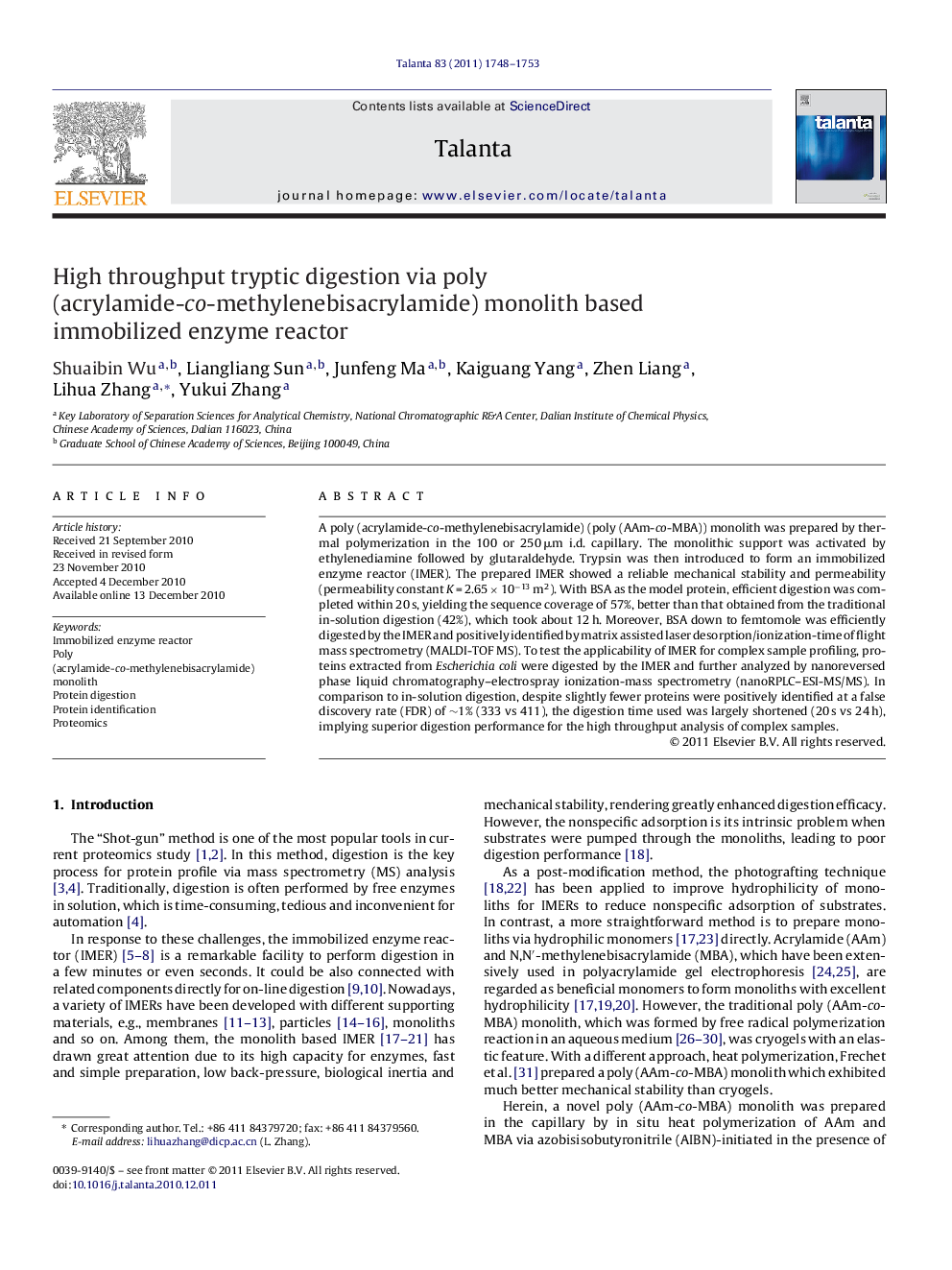| Article ID | Journal | Published Year | Pages | File Type |
|---|---|---|---|---|
| 10559591 | Talanta | 2011 | 6 Pages |
Abstract
A poly (acrylamide-co-methylenebisacrylamide) (poly (AAm-co-MBA)) monolith was prepared by thermal polymerization in the 100 or 250 μm i.d. capillary. The monolithic support was activated by ethylenediamine followed by glutaraldehyde. Trypsin was then introduced to form an immobilized enzyme reactor (IMER). The prepared IMER showed a reliable mechanical stability and permeability (permeability constant K = 2.65 Ã 10â13 m2). With BSA as the model protein, efficient digestion was completed within 20 s, yielding the sequence coverage of 57%, better than that obtained from the traditional in-solution digestion (42%), which took about 12 h. Moreover, BSA down to femtomole was efficiently digested by the IMER and positively identified by matrix assisted laser desorption/ionization-time of flight mass spectrometry (MALDI-TOF MS). To test the applicability of IMER for complex sample profiling, proteins extracted from Escherichia coli were digested by the IMER and further analyzed by nanoreversed phase liquid chromatography-electrospray ionization-mass spectrometry (nanoRPLC-ESI-MS/MS). In comparison to in-solution digestion, despite slightly fewer proteins were positively identified at a false discovery rate (FDR) of â¼1% (333 vs 411), the digestion time used was largely shortened (20 s vs 24 h), implying superior digestion performance for the high throughput analysis of complex samples.
Related Topics
Physical Sciences and Engineering
Chemistry
Analytical Chemistry
Authors
Shuaibin Wu, Liangliang Sun, Junfeng Ma, Kaiguang Yang, Zhen Liang, Lihua Zhang, Yukui Zhang,
